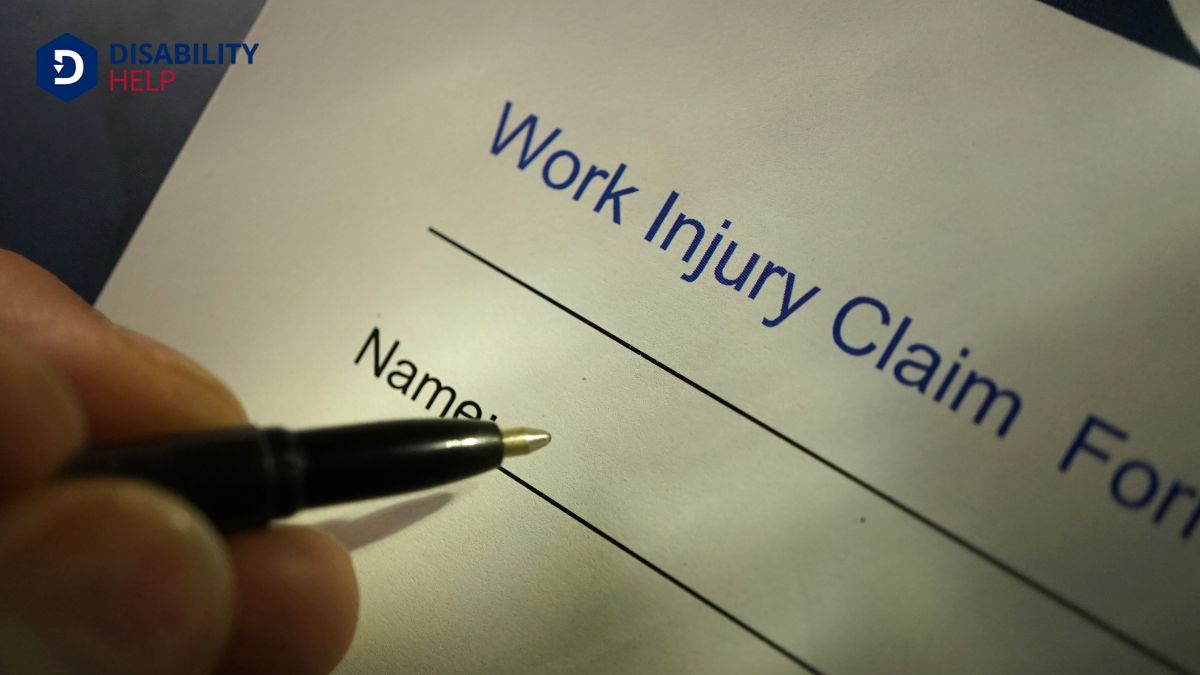When it comes to workers' compensation coverage, there are ten vital duties that we, as employers, must prioritize. These responsibilities aren't just about compliance; they're about fostering a safe and supportive work environment. From notifying employees about their coverage to ensuring timely injury reports, each step plays an essential role. We also need to maintain accurate records and implement effective return-to-work programs. But there's more to it—understanding our legal obligations and managing filing deadlines are equally important. Let's explore how each of these duties impacts our workforce and our business.
Key Takeaways
- Inform new hires about workers' compensation coverage through written notification.
- Report work-related injuries within 30 days to ensure benefit eligibility.
- Maintain accurate records for legal compliance and effective claims management.
- Implement return-to-work programs with light-duty tasks for injured employees.
- Prohibit retaliation against employees filing workers' compensation claims.
Provide Coverage Notification

Providing coverage notification is an essential responsibility for employers in Texas. By law, we must inform new hires whether they're covered by workers' compensation or not. This isn't just a courtesy—it's a legal requirement. Ensuring that employees receive this notification in writing helps maintain transparency and compliance with Texas worker's compensation requirements.
When we hire new workers, we need to clearly state our workers compensation coverage status. Are we providing coverage, or are we not? This written notification should be straightforward and easily understandable. It's vital to avoid any ambiguity to prevent potential legal consequences.
For those of us who might consider changing our coverage status, remember that Texas law mandates we inform our employees and the Workers Compensation Division if we discontinue workers' compensation coverage. Failing to meet these requirements can lead to serious repercussions for our business.
Providing timely and clear coverage notifications isn't just about following the rules—it's about fostering trust and ensuring a safe, transparent working environment. Let's prioritize this responsibility to protect both our employees and our organization, adhering to the legal standards set forth by Texas.
Inform on Coverage Changes
Notifying our employees about changes in workers' compensation coverage is another critical responsibility we must uphold. It's essential that we promptly inform employees of any workers' compensation coverage changes. Texas law mandates that we alert workers about their coverage status, whether they're new hires or current employees facing a change in coverage.
When there's a modification in coverage, such as discontinuing our workers' compensation policy, we're required to notify both our employees and the Workers' Compensation Division. This step guarantees that everyone affected comprehends the new reality and can adjust accordingly. Failure to inform employees can lead to severe legal consequences and financial penalties for our organization.
To comply with Texas law, we must communicate any alterations in workers' compensation coverage status immediately. This proactive approach helps maintain transparency and trust within our workforce. Informing workers about these changes aids them in understanding their rights and what to anticipate if they need to make a claim.
Report Injuries Promptly
Why is promptly reporting injuries so important in our workplace? Reporting injuries promptly is necessary to guarantee that injured employees receive the worker's compensation benefits to which they're entitled. In Texas, for example, employees must report work-related injuries within 30 days to be eligible for these benefits. This timely reporting is crucial for initiating the worker's compensation claim process and ensuring that injured employees get the necessary medical treatment without delay.
When we report injuries promptly, we're not only helping our employees but also complying with workers' compensation laws. Delays in reporting can lead to significant setbacks, including disputes over the cause of the injury and potential delays in receiving benefits. This can negatively impact the outcome of the worker's compensation claim and the overall recovery process for the injured employee.
Timely reporting also allows employers to document and investigate the incident thoroughly. Proper documentation is vital for supporting the worker's compensation claim and ensuring compliance with legal requirements.
Maintain Accurate Records
Maintaining accurate records is absolutely necessary for managing workers' compensation claims effectively. When a work-related injuryAn injury that occurs in the course of employment, potentially leading to temporary or permanent dis... or illness occurs, we must document every detail meticulously. This includes the nature of the injury, the medical care provided, and any follow-up procedures. Accurate records aren't just for our peace of mind—they're an essential component of the worker's compensation system.
Proper documentation is crucial for legal defense if disputes or claims arise. Detailed records can prove that we've met our obligations under workers' compensation laws, ensuring we're compliant with all reporting requirements. This compliance not only protects us legally but also helps maintain the integrity of the worker's compensation system.
Tracking employee recovery progress is another vital aspect where accurate records play a significant role. Keeping detailed accounts of medical treatments and recovery stages helps us support our employees better and guarantees they're receiving the necessary care.
In essence, maintaining accurate records is about safeguarding both our employees and our business. It helps in managing claims efficiently, provides a robust legal defense, and ensures we're fulfilling our obligations under the law. Let's make accurate records a priority for effective workers' compensation management.
Implement Return-to-Work Programs

Implementing return-to-work programs is a tangible demonstration of our dedication to employee recovery and well-being. These programs are designed to facilitate the smooth progression of injured employees back to the workplace. By offering modified duties or accommodationsModifications or adjustments in healthcare settings to support patients with disabilities., we can help injured workers resume their job responsibilities more effectively.
Return-to-work programs aren't just beneficial for employees; they also make good business sense. Studies show that these initiatives can reduce workers' compensation costs by up to 20%. When we provide light-duty tasks or flexible work arrangementsWork schedules that allow employees with disabilities to manage their health and job responsibilitie..., we not only support injured employees in their return to productivity but also maintain a more stable and efficient workplace.
Our dedication to employees goes beyond just meeting legal obligations. By implementing return-to-work programs, we show that we value their contributions and care about their recovery. This fosters a supportive work environment where everyone feels valued and motivated. It's crucial to tailor these programs to individual needs, ensuring that the accommodations provided are appropriate for the injured worker's condition.
In essence, return-to-work programs are a win-win. They enable injured employees to reintegrate smoothly and keep our workers compensation costs manageable, all while reinforcing our dedication to employees.
Avoid Retaliation
While return-to-work programs highlight our commitment to employee recovery, it's equally important to guarantee we don't retaliate against those who file workers compensation claims. As employers, we've a duty to uphold a safe and supportive environment where employees feel protected when they exercise their rights under workers comp laws. Retaliation, such as demotion, termination, or salary reduction in response to filing claims, isn't only unethical but also illegal.
Our employees need to know that reporting work-related injuries or illnesses won't jeopardize their employment or career progression. Prohibiting retaliation is essential in fostering a culture of trust and security. When employees feel safe to report issues, it enhances overall workplace well-being and ensures compliance with workers comp laws.
Moreover, retaliatory actions can lead to severe legal consequences for us as employers, including civil actions and penalties. By avoiding retaliation, we not only protect our employees but also safeguard our organization from potential legal troubles. Promoting a retaliation-free workplace is key to maintaining a positive work environment and demonstrating our commitment to employee rights and safety. Let's make sure all our workers feel supported and protected.
Understand Legal Obligations
As employers, we must understand our legal obligations to guarantee compliance with state workers comp laws. This includes meeting employee notification requirements and providing necessary coverage. By doing so, we protect both our employees and our business from potential legal and financial risks.
Compliance With State Laws
Understanding and complying with state laws regarding workers compensation coverage is crucial for every employer. We must recognize that each state has its own set of regulations and legal obligations concerning workers compensation coverage. These laws are designed to make sure that employees are adequately protected in the event of work-related injuries. As responsible employers, our primary goal should be adherence to these state laws to avoid severe consequences.
Failure to comply with state regulations can expose our businesses to significant financial risks and penalties. Non-compliance might result in hefty fines, lawsuits, and even personal liability for business owners. This not only impacts our financial standingThe legal right to bring a lawsuit, which requires that the individual bringing the suit has a direc... but also our reputation as a responsible employer.
Understanding our legal obligations is not just about avoiding penalties. It's about safeguarding our business and providing a secure environment for our employees.
Employee Notification Requirements
To effectively manage our workers compensation responsibilities, we must prioritize informing employees about their coverage. In Texas, informing new hires about their workers compensation coverage—or lack thereof—is an important employer duty. This initial employee notification should clearly outline where they can seek medical treatment in the event of a work-related injury.
It's vital that we help employees understand their rights and responsibilities under workers compensation laws. By doing so, we empower them to take appropriate actions if they get injured on the job, reducing potential confusion and making sure they receive the necessary support.
Moreover, if we decide to discontinue workers' compensation coverage, we're obligated to inform both the affected employees and the Workers Compensation Division. This isn't just a formality; it's a legal requirement that helps avoid financial risks and possible legal consequences.
Failure to properly notify employees about their worker's compensation coverage or any changes can lead to serious consequences. It's our duty to guarantee clear communication to protect both our employees and our organization. By adhering to these notification requirements, we uphold our dedication to employee rights and maintain compliance with workers' compensation laws.
Manage Filing Deadlines
Meeting filing deadlines for workers comp claims is important for both employers and employees. Filing deadlines, which vary by state, must be followed for the timely processing of claims. If we miss these deadlines, it can result in claim denial or delayed benefits for the injured employee, creating unnecessary hardship and stress. Understanding and complying with these deadlines is vital to avoid legal complications and guarantee smooth workers comp claim processing.
As employers, it's our responsibility to be familiar with the specific timeframes set by our state. For example, some states require that we report work-related injuries within 30 days from the date of injury. We need to educate our employees about these reporting procedures and deadlines to make sure prompt filing of workers comp claims. This helps us maintain compliance and facilitates quicker resolution with our workers compensation insurance carrier.
Educate Employees on Benefits

Educating employees on workers' compensation benefits is vital for fostering a knowledgeable and empowered workforce. When we educate employees about their rights and responsibilities in case of work-related injuries, we're not just fulfilling a legal duty; we're also promoting a safer, more transparent work environment.
Firstly, employees need to understand the full extent of their workers compensation benefits. This includes information on medical coverage for any work-related injuries, income benefits that provide financial support during recovery, and death benefits for the families of deceased workers. These elements make sure that employees can make informed decisions if they ever need to utilize these benefits.
Clear communication about the claims process and reporting requirements is also essential. By explaining how to report an injury and the steps involved in filing a claim, we can help guarantee timely and accurate reporting. This not only aids the injured employee but also helps the company manage claims more efficiently.
We can use training sessions or informational materials to break down these concepts. By doing so, we make it easier for employees to grasp how workers comp benefits work and how to access them when needed. Let's prioritize this education to create a safer, more informed workplace.
Comply With State Laws
Adhering to state laws concerning workers comp coverage is crucial for safeguarding our business and our employees. Each state has its own regulations that dictate when and how we must provide workers' compensation coverage. These laws typically specify the minimum number of employees that trigger the requirement for coverage. As responsible employers, grasping these criteria is indispensable to meet our employer duties and avoid severe consequences.
Non-compliance with state laws can lead to fines, penalties, and other legal liabilities. These legal repercussions not only damage our reputation but also pose significant financial risks. We must stay informed about state-specific regulations to maintain compliance and protect our business from potential legal and financial troubles.
To help us stay on track, consider these key points:
- Know Your State's Requirements: Each state has different criteria for workers compensation coverage. Make sure we comprehend and adhere to our state's specific laws.
- Regular Audits: Conduct regular audits to guarantee ongoing compliance with state regulations.
- Consult Professionals: Engage legal or HR professionals to stay updated on any changes in state laws and regulations.
Frequently Asked Questions
Are all businesses required to have workers' compensation insurance?
Most states require businesses with one or more employees to have workers' compensation insurance. However, requirements can vary depending on the state, the type of business, and the number of employees. Some states provide exemptions for certain types of businesses or industries.
What happens if an employer fails to provide workers' compensation insurance?
Failure to provide workers' compensation insurance can result in significant penalties, fines, and potentially criminal charges. Additionally, employers may be exposed to civil lawsuits from injured employees seeking compensation for injuries or illnesses.
How should employers handle a claim for workers' compensation?
Employers should promptly report the claim to their workers' compensation insurance carrier and cooperate with any investigations into the claim. It’s important to maintain clear records of the incident and any communications related to the claim. Employers should also facilitate the injured employee's return to work when medically appropriate.
Can employers direct injured workers to specific healthcare providers?
In some states, employers or their insurance carriers can direct injured workers to specific healthcare providers for the initial treatment following an injury. However, the rules about ongoing medical care can vary, and in some cases, employees may have the right to choose their own healthcare provider after a certain period.
Conclusion
To wrap up, by staying informed and proactive about workers' compensation, we can guarantee our workplace remains safe and compliant. Let's commit to notifying employees about coverage, reporting injuries promptly, and maintaining accurate records. By implementing return-to-work programs and educating our team on their benefits, we'll foster a supportive environment. Adhering to state laws and understanding our legal obligations are essential steps. Together, we can demonstrate our dedication to employee well-being and legal adherence.






